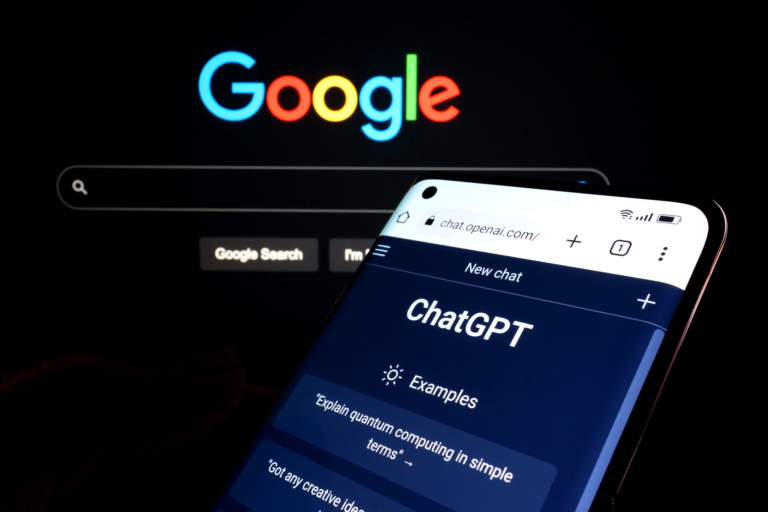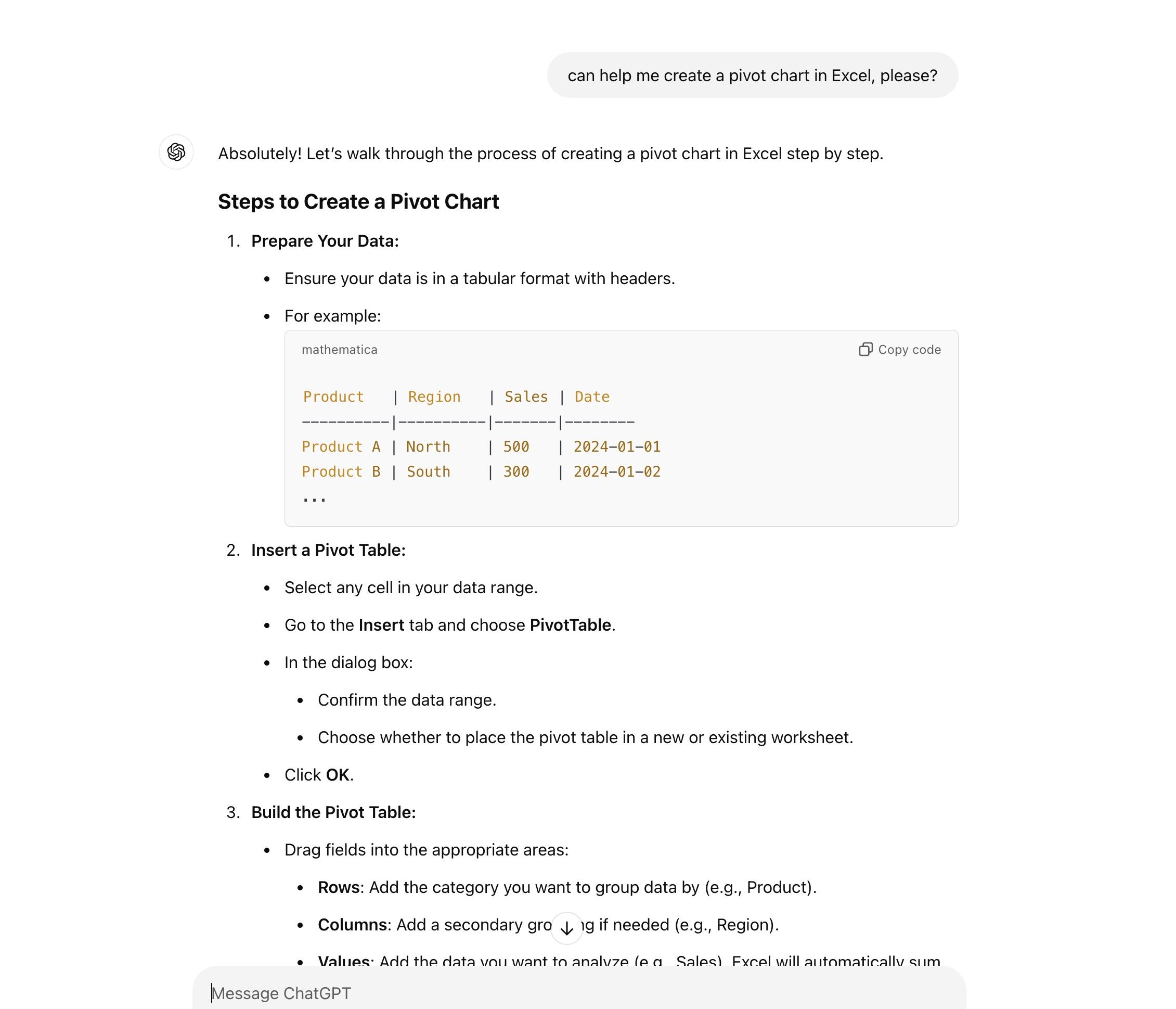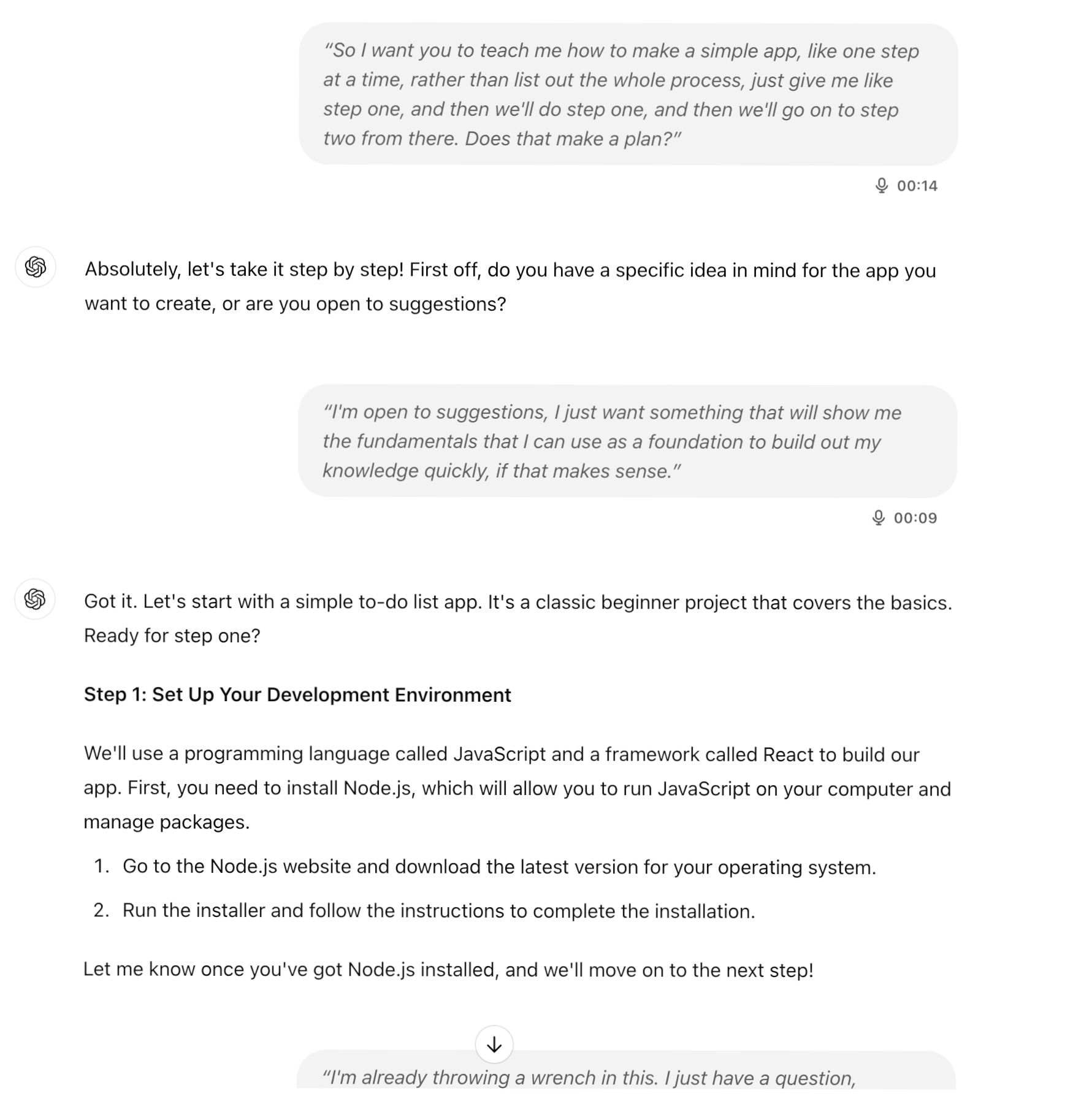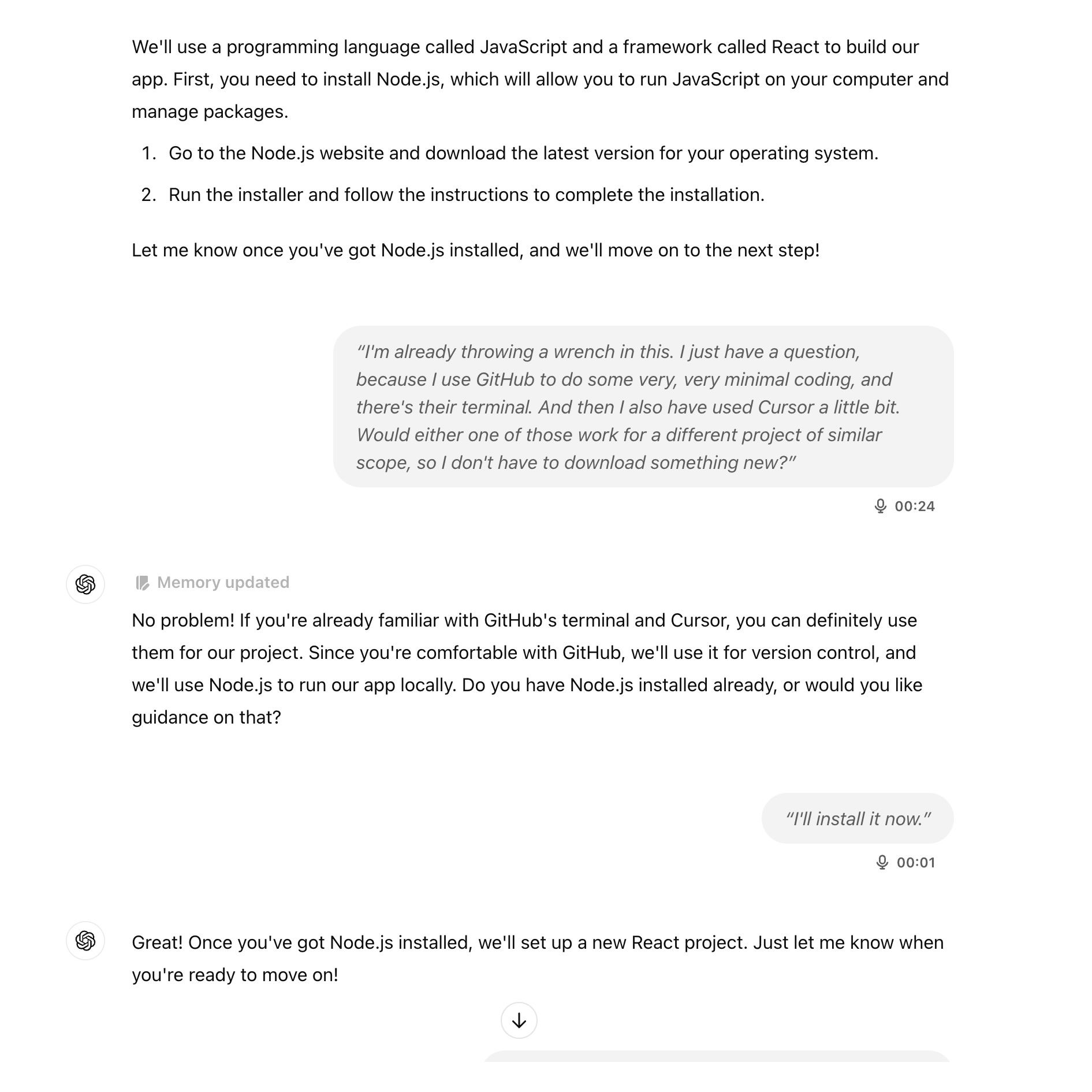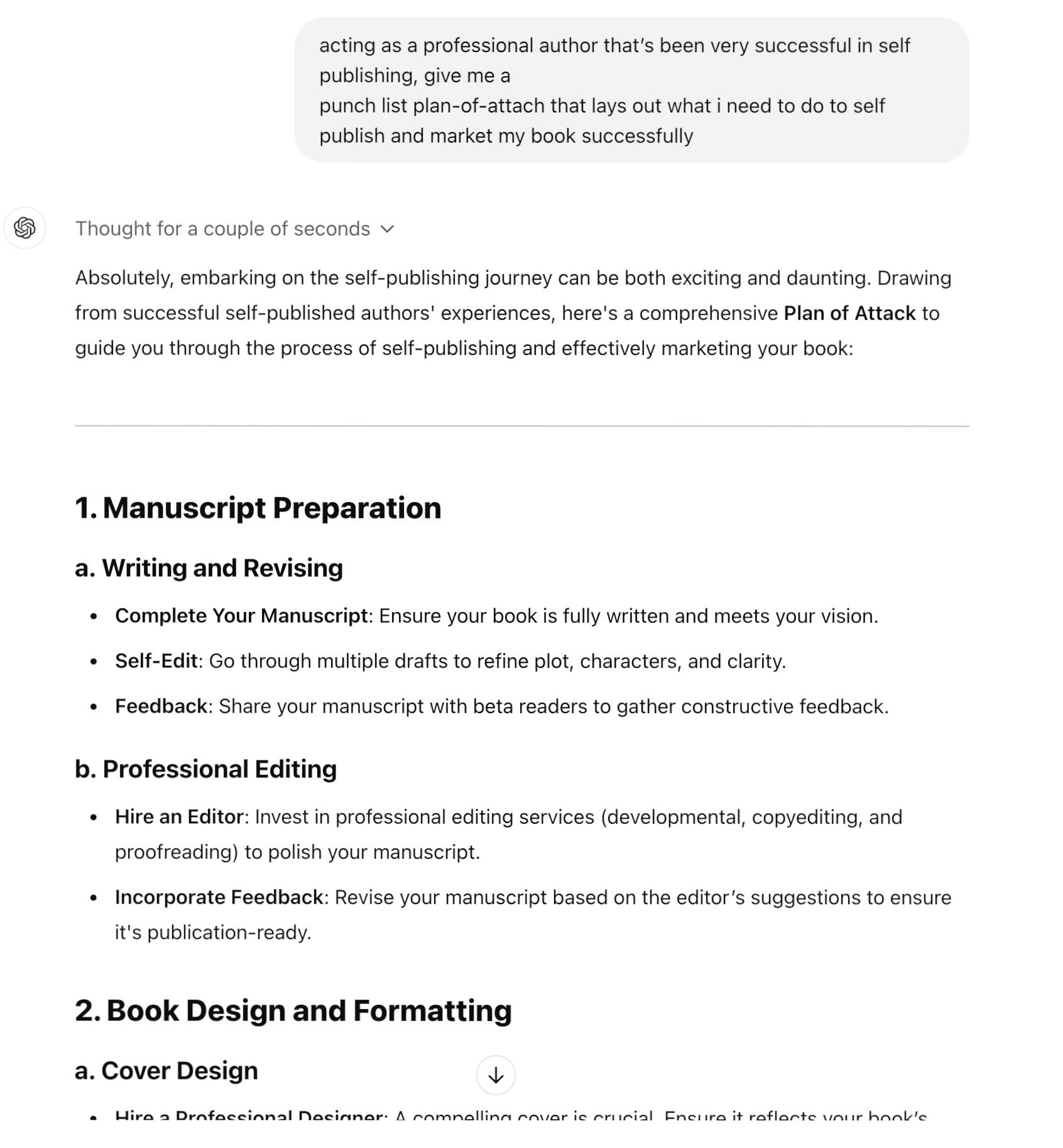Key Takeaways
- ChatGPT offers personalized responses for learning that are beyond Google’s capabilities.
- ChatGPT enhances efficiency and workflows and helps troubleshoot software on the fly.
- AI models like ChatGPT excel at ideation and provide tailored assistance, but Google remains crucial for diverse perspectives.
Google dominates online search. There isn’t another company that comes near it. But ChatGPT’s deeply engaging, interactive process offers a completely unique, streamlined process that sees me using it more and more.
Troubleshooting Software
ChatGPT can be a powerful alternative to traditional Google searches when troubleshooting or requiring specific steps in nearly any software. While Google delivers a wide array of links and resources, it often requires sifting through multiple pages, blogs, forums, or tutorials to find a solution tailored to your specific problem. This can be time-consuming, especially if the issue requires immediate attention.
ChatGPT, on the other hand, offers concise, context-aware answers tailored directly to the user’s query. For instance, if you encounter an issue formatting a Word document or creating formulas in Excel, ChatGPT can provide step-by-step guidance without redirecting you elsewhere. It processes the specific details of your problem, allowing you to ask follow-up questions or clarify uncertainties in real time. This dynamic, conversational approach minimizes the trial-and-error process, saving time and frustration.
Moreover, ChatGPT can adapt its response style, offering quick fixes for simple issues or more in-depth explanations for complex problems. I’ve implemented this in my use of Ableton Live, which has been my Digital Audio Workstation (DAW) of choice for nearly a decade. Like any worthwhile creative endeavor, it’s helped me discover new heights of creative expression, achieved almost entirely through repetitive acts of mind-bending frustration.
That all changed when I considered dumping the 900+ page manual into a custom GPT. Now all of that knowledge is at my beck and call, and it’s an invaluable resource to have on hand. Any time I’m unsure what I’m doing or encounter an issue, I simply fire up ChatGPT and let it solve my problems.
Learning and Deepening Understanding of New Topics
Customizing AI language models like ChatGPT into a personalized knowledge base is a game changer for learning. Its dynamic communication and real-time responses provide incredible in-depth insights on virtually any topic—which Google struggles to match. While search engines can provide answers, they often do so in broad, limited ways that fail to account for the nuances of a user’s specific needs and learning style.
With ChatGPT and other LLMs, you can create a personal tutor with unlimited patience. The wildest piece to all of this, to me anyway, is how easy it is for anyone to access this resource. All you have to do is ask.
For instance, I’m using ChatGPT to learn coding skills, starting by automating small tasks like managing my cluttered email inbox. It’s remarkable, given that I had zero prior coding experience and never imagined I’d be learning these skills.
It all began by simply asking ChatGPT a question and expressing my interest in learning to code, even though I had no idea where to start. In less than 24 hours, I built a rough but functional email automation solution armed with coding knowledge I had learned in that brief timeframe.
Iterating and Generating Ideas
As a seasoned marketing professional, I’ve worked on campaigns, promotions, and branding for a wide range of products over the years. While I consider myself well-versed in effective marketing strategies, one area has consistently challenged me—and I suspect many of my peers face the same struggle.
I simply cannot market myself effectively.
This became a pressing issue when I needed to develop a campaign strategy for an e-book I wrote. Normally, I would have turned to Google for tips and templates. However, I decided to try a different approach this time and consulted ChatGPT instead. Despite my confidence in my abilities, I dreaded the prospect of coming up with a plan. But to my surprise, ChatGPT helped me ideate and generate angles and ideas that felt genuinely refreshing and interesting.
Unlike a traditional Google search, which provides a block of information to sift through, ChatGPT engaged in an iterative, collaborative dialogue to build ideas. It didn’t just offer generic templates but reasoned about my tone, audience, and objectives to craft a tailored, step-by-step campaign strategy that left room for evolution.
ChatGPT distilled all the ideas and collateral I needed, from teaser posts and trending hashtags to automation recommendations, providing ideas, content hooks, audience engagement techniques, and personalization tips.
Google Search isn’t dead. But with competing tools like ChatGPT that can create completely personalized advice, work flows, plans, and more, it’s no wonder more and more folks like me are switching over.
